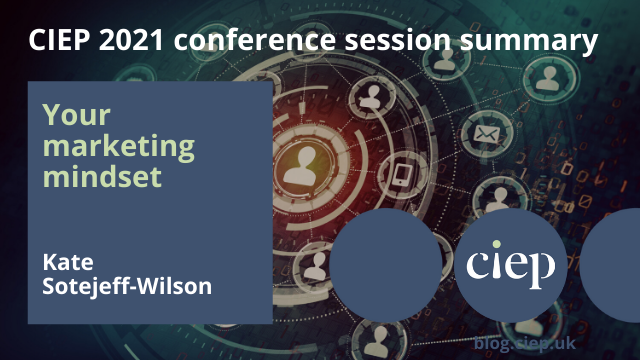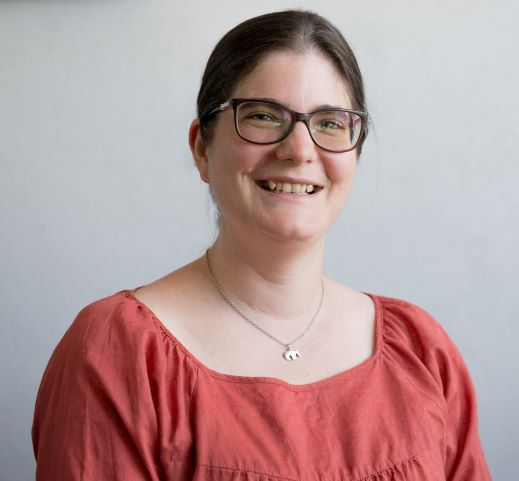How can editors earn more money in their freelance editing business? Carla DeSantis discusses the advice presented by Malini Devadas at a recent Toronto CIEP local group meeting:
-
- Common mistakes when setting rates
- Mindset and strategy
- Marketing your freelance editing business
One of the benefits of being a CIEP member is the option to participate in local group meetings – getting to know other local editors, sharing information and making collegial connections. As the global pandemic forced groups to meet online, one advantage for the Toronto CIEP local group has been the ability not only to include Canadian editors outside of Toronto, but also to host guest speakers from around the world at these local gatherings.
In January 2022, Toronto CIEP local group coordinator Janet MacMillan invited Malini Devadas, based in Australia, to speak to our group on how to earn more money in our freelance editing businesses. Malini Devadas coaches editors and academic writers; through her business Edit Boost she helps editors to find more clients and earn more money.
Common mistakes when setting rates
Malini began the Toronto CIEP session by outlining four common mistakes that editors make when thinking about their rates:
- Worrying about what others charge
- Assuming that you know what clients will pay, without basing that assumption on data
- Devaluing your own time and skills
- Underestimating how long a job will take, which could lead to overestimating earnings and underquoting.
Mindset and strategy
In order to counter these common mistakes that editors can make in their businesses, Malini suggested adopting the following mindset and strategy:
1. Be confident in your ability to help people
How do you help your target client? When content marketing, talk about the issues that are of interest to your clients, not necessarily to other editors. What are your clients worrying about? According to Malini, it most likely is not simply punctuation and word choice. Show your clients that you can solve their problems for them. Since Malini also coaches academic and scholarly authors, she emphasised the need to normalise the idea of academics being edited.
2. Realise that you cannot help everyone who contacts you
As an editor, you may be limited by your schedule, what you need to earn, and your expertise. It is important to determine when you do not have the subject expertise necessary for a project and to perhaps pass it on to a suitable colleague. If a client is not able to pay what you need to earn in order to properly complete a job, it is okay to say no. Conversely, if you do not really want the job or already have too much work on your plate, you can charge more.
3. You are allowed to earn whatever you want to earn
Frequently, editors figure out what this amount is by working backwards from what their expenses are. It is important to take into consideration any specialised skills or knowledge that you may have, professional designations or how long you have been an editor. While it is easy to assume that certain disciplines (such as academia) may pose an unspoken limit on acceptable rates, Malini suggested that editors should not generalise about a discipline’s ability to pay, as sources of revenue may exist, despite your assumptions.
4. Life balance is a necessity, not a luxury
Everyone needs sleep and rest, even (or especially) editors! It is important for freelance editors to adopt a mindset that allows them to plan for life balance within their work schedule.
5. Market your business to attract the people who value what you do
If you focus your message on your ideal clients, you will automatically repel the clients who are not right for you. And remember, you do not necessarily need a lot of clients per year, just the right number of key clients to keep you busy for the time that you wish to be working (this could work out to, for example, 12 clients a year, if your average project lasts a month – fewer if you factor in vacation time). If you focus on marketing to the right people, you will get more inquiries from those potential clients who have the budget to pay your desired rates. If you can increase the number of inquiries coming in, you may then be able to earn more money by working fewer hours (which leads to #4 above). And remember #2 above: you do not have to take every job.
Marketing your freelance editing business
So, what should freelance editors’ marketing strategy include in order to increase inquiries and, consequently, their ability to raise rates? Malini suggested using some of the following sources:
- Contacts and connections. Let your existing contacts know that you are offering editorial services. If your target clients are academic writers, for example, consider offering writing or publishing workshops at universities (which may come with some compensation); such speaking engagements will give you good exposure. If you wish to work with graduate students, contact the departmental person who coordinates graduate students or use one of your contacts for an introduction.
- Social media. Find out where your ideal clients hang out on social media platforms: Twitter, Instagram, Facebook, LinkedIn? In the case of academics, Twitter seems to be the preferred platform for engagement. Once you determine where your clients engage, work to develop relationships with people who can lead you to contacts. For example, consider whether you are targeting professors directly, publishers or managing editors. If you are offering workshops, remember that you need to sell your services to the university and departmental administrators, not directly to students.
- Email marketing. Once you have provided content on social media that will get your ideal clients’ attention and people become familiar with you through those channels, consider moving these connections to email marketing. In this model, you will be providing content via email directly to the inboxes of people who have already decided that you add value.
- Writing blog posts intended for your ideal clients (not for other editors) can also be a useful tool for driving new clients to your website. Hosting your material on your own website creates evergreen content that you can continue to share on social media. Once the blog post drives traffic to your website, you should have a call to action at the end of every blog post, which will encourage the potential client either to join your email list or to contact you.
The key, however, is to use whatever platform you are comfortable with, as long as you do some form of marketing.
I am grateful that the Toronto CIEP group provided a forum for our local group to connect with Malini at our meeting. The international editing community is lucky to have someone like Malini as a resource to constantly encourage us to value our skills, services and time. I have taken many of Malini’s suggestions into account over the past several years and have seen my business and income grow as a result. It is easy for freelance editors – frequently working in isolation – to undervalue themselves without cause. Malini’s main message, which is one that all freelance editors should embrace, is that editors running their own businesses offer significant value that should be properly compensated. Confidence to advocate for ourselves is key.
About Carla DeSantis
Carla DeSantis is an editor, indexer and translator based in Toronto, Canada. She specialises in scholarly humanities and social sciences, especially multilingual texts, and is an Advanced Professional Member of the CIEP. Carla has published on medieval Latin topics and is the author of the blog Parchment to PDF.
 About the CIEP
About the CIEP
The Chartered Institute of Editing and Proofreading (CIEP) is a non-profit body promoting excellence in English language editing. We set and demonstrate editorial standards, and we are a community, training hub and support network for editorial professionals – the people who work to make text accurate, clear and fit for purpose.
Find out more about:
Photo credits: money by nattanan23, man on grass by Pexels, both on Pixabay.
Posted by Harriet Power, CIEP information commissioning editor.
The views expressed here do not necessarily reflect those of the CIEP.





